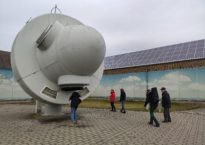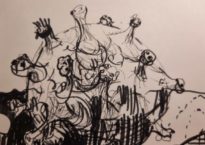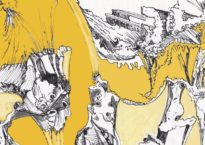Research and teaching project: How does sustainable transition work?
The European Union has started to align its cohesion and investment policies with sustainable development goals, and so have the federal German government and the government of the State Brandenburg. But, how are sustainability agendas understood and implemented locally, by actors who have commited to specific projects of sustainable transition, so-called change-makers? What sense do they make of multilevel sustainability governance? Students of European University Viadrina address these questions in a series of classes on sustainable transition in the State Brandenburg designed and directed by Amelie Kutter.


